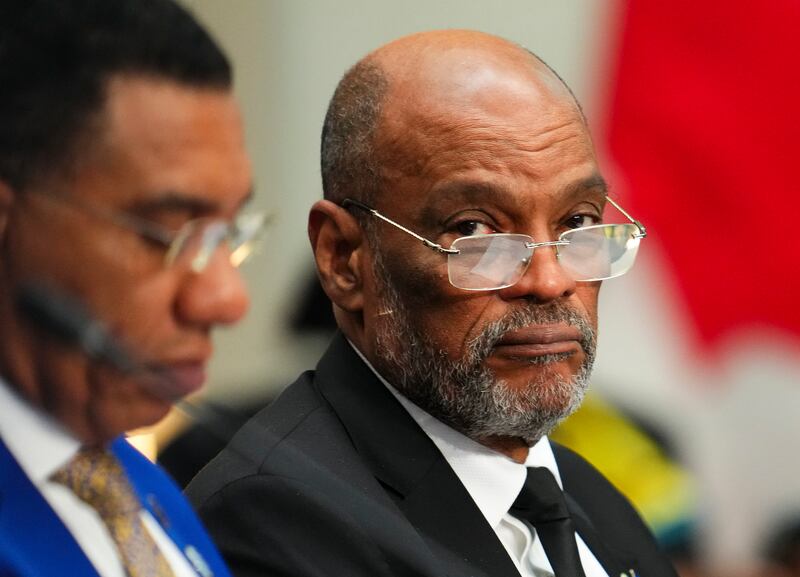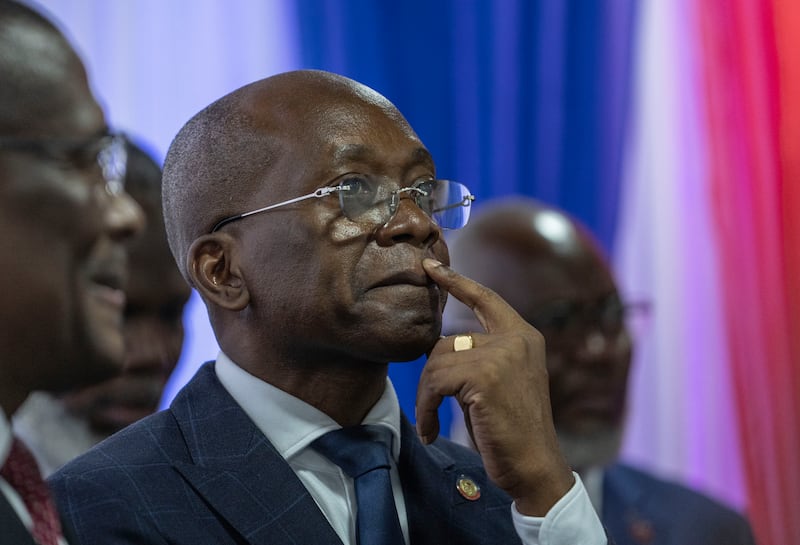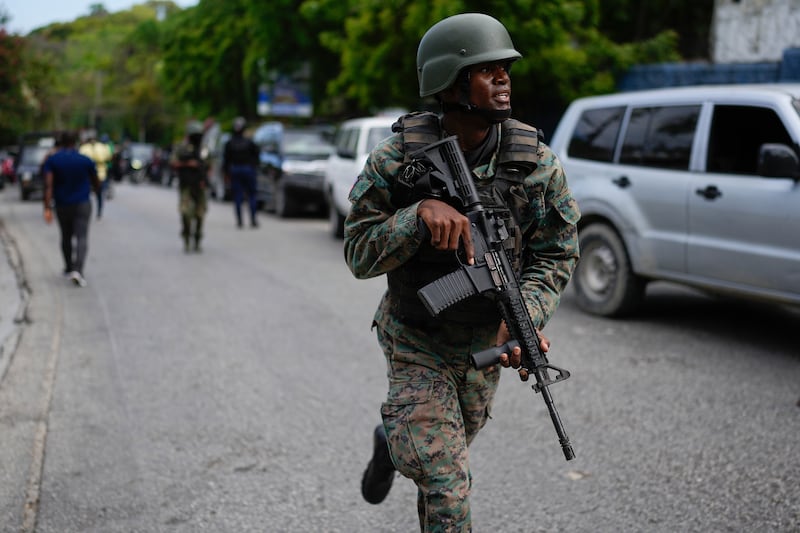Haiti has opened a new political chapter with the installation of a transitional council tasked to pick a new prime minister and prepare for eventual presidential elections, in hopes of quelling spiralling gang violence that has killed thousands in the Caribbean country.
Ariel Henry, the prime minister who had been locked out of the country for the past couple of months due to the violence, cleared the way for the transition by presenting his resignation in a letter signed in Los Angeles.
The document was released on Thursday in Haiti on the same day as the new transitional council was sworn in to choose a new prime minister and Cabinet.

Mr Henry’s outgoing Cabinet chose Economy and Finance Minister Michel Patrick Boisvert as interim prime minister in the meantime.
It was not immediately clear when the transitional council would name its own choice for interim prime minister.
The council was officially sworn in at the National Palace in downtown Port-au-Prince on Thursday as the pop of sporadic gunfire erupted nearby, prompting some officials to look around the room.
The council had been urged to seek a safer venue because gangs have launched daily attacks in the area.
Addressing a crowded and sweaty room in the prime minister’s office hours later in Petion-Ville, Mr Boisvert said that Haiti’s crisis had gone on too long and that the country now found itself at a crossroads.
“After long months of debate… a solution has been found,” Mr Boisvert said. “Today is an important day in the life of our dear republic.”

He called the transitional council a “Haitian solution” and directing his remarks toward them, Mr Boisvert wished them success, adding: “You are to lead the country to peace, to economic and social recovery, to sacred union, to participation.”
After the speeches, the soft clink of glasses echoed in the room as attendees served champagne flutes toasted with a sombre “to Haiti”.
The council was installed earlier on Thursday, more than a month after Caribbean leaders announced its creation following an emergency meeting to tackle Haiti’s spiralling crisis.
The nine-member council, of which seven have voting powers, is expected to help set the agenda of a new Cabinet.
It will also appoint a provisional electoral commission, a requirement before elections can take place, and establish a national security council.
Gangs launched coordinated attacks that began on February 29 in the capital, Port-au-Prince, and surrounding areas.

They burned police stations and hospitals, opened fire on the main international airport that has remained closed since early March and stormed Haiti’s two biggest prisons, releasing more than 4,000 inmates.
Gangs have also severed access to Haiti’s biggest port.
The onslaught began while Mr Henry was on an official visit to Kenya to push for a UN-backed deployment of a police force from the East African country.
In his resignation letter, Mr Henry said Haiti would be reborn.
“We served the nation in difficult times,” he wrote. “I sympathise with the losses and suffering endured by our compatriots during this period.”








